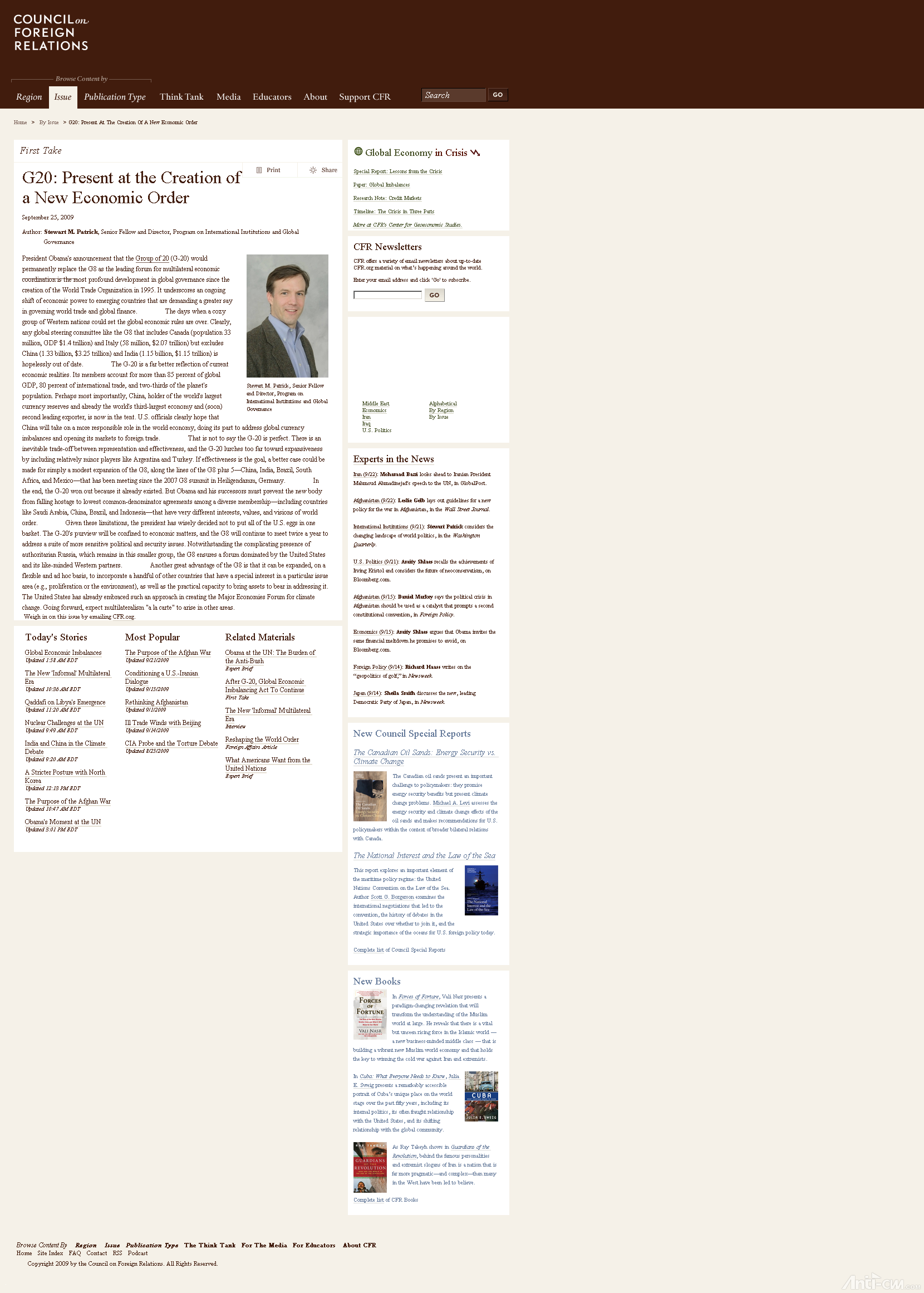|
|
G20: Present at the Creation of a New Economic Order
http://www.cfr.org/publication/20296/g20.html?breadcrumb=%2Fissue%2F
September 25, 2009
Author: Stewart M. Patrick, Senior Fellow and Director, Program on International Institutions and Global Governance
President Obama's announcement that the Group of 20 (G-20) would permanently replace the G8 as the leading forum for multilateral economic coordination is the most profound development in global governance since the creation of the World Trade Organization in 1995. It underscores an ongoing shift of economic power to emerging countries that are demanding a greater say in governing world trade and global finance.
The days when a cozy group of Western nations could set the global economic rules are over. Clearly, any global steering committee like the G8 that includes Canada (population 33 million, GDP $1.4 trillion) and Italy (58 million, $2.07 trillion) but excludes China (1.33 billion, $3.25 trillion) and India (1.15 billion, $1.15 trillion) is hopelessly out of date.
The G-20 is a far better reflection of current economic realities. Its members account for more than 85 percent of global GDP, 80 percent of international trade, and two-thirds of the planet's population. Perhaps most importantly, China, holder of the world's largest currency reserves and already the world's third-largest economy and (soon) second leading exporter, is now in the tent. U.S. officials clearly hope that China will take on a more responsible role in the world economy, doing its part to address global currency imbalances and opening its markets to foreign trade.
That is not to say the G-20 is perfect. There is an inevitable trade-off between representation and effectiveness, and the G-20 lurches too far toward expansiveness by including relatively minor players like Argentina and Turkey. If effectiveness is the goal, a better case could be made for simply a modest expansion of the G8, along the lines of the G8 plus 5—China, India, Brazil, South Africa, and Mexico—that has been meeting since the 2007 G8 summit in Heiligendamm, Germany.
In the end, the G-20 won out because it already existed. But Obama and his successors must prevent the new body from falling hostage to lowest common-denominator agreements among a diverse membership—including countries like Saudi Arabia, China, Brazil, and Indonesia—that have very different interests, values, and visions of world order.
Given these limitations, the president has wisely decided not to put all of the U.S. eggs in one basket. The G-20's purview will be confined to economic matters, and the G8 will continue to meet twice a year to address a suite of more sensitive political and security issues. Notwithstanding the complicating presence of authoritarian Russia, which remains in this smaller group, the G8 ensures a forum dominated by the United States and its like-minded Western partners.
Another great advantage of the G8 is that it can be expanded, on a flexible and ad hoc basis, to incorporate a handful of other countries that have a special interest in a particular issue area (e.g., proliferation or the environment), as well as the practical capacity to bring assets to bear in addressing it. The United States has already embraced such an approach in creating the Major Economies Forum for climate change. Going forward, expect multilateralism "a la carte" to arise in other areas.

|
CFR, Creation, Economic, Order, Present, CFR, Creation, Economic, Order, Present, CFR, Creation, Economic, Order, Present
评分
-
1
查看全部评分
-
|